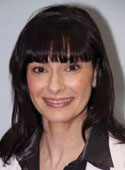By Dr. Jean Keamy
As a refractive surgeon, many people come to me to find out how they can be glasses-free. Refractive surgery, a subspecialty of ophthalmology, includes procedures that correct for myopia, hyperopia, astigmatism and presbyopia.
 Myopia or nearsighted means that distance vision is poor. Hyperopia or farsighted means that near and intermediate vision are poor. With advancing age, hyperopia also results in poor distance vision. Astigmatism refers to an oval shape of the cornea. It makes all distances blurry.
Myopia or nearsighted means that distance vision is poor. Hyperopia or farsighted means that near and intermediate vision are poor. With advancing age, hyperopia also results in poor distance vision. Astigmatism refers to an oval shape of the cornea. It makes all distances blurry.
There are several procedures available to reduce dependence on glasses. Candidacy depends on the type of refractive error, degree of refractive error, eye health and patient age. LASIK is the most well known and most common refractive procedure. It can treat myopia, hyperopi and astigmatism in healthy eyes. LASIK involves creating a flap in the cornea to expose the second layer of the cornea called the stroma. An excimer laser then reshapes the stromal layer of the cornea. The LASIK flap gets put back into place.
The rapid healing time and minimal discomfort make LASIK the number one refractive procedure in America.
The technology for LASIK has advanced in the past few years. Intralase or iLASIK uses a laser rather than a blade to create a flap. This has decreased the incidence of flap complications. It also allows for the creation of a thinner flap. With a thinner flap, iLASIK allows me to treat patients with thinner corneas and higher corrections.
In addition to intralase, customized laser treatments have become more common.
Custom LASIK delivers an individualized laser treatment that can correct vision better than with glasses or contacts. Custom LASIK also treats a larger diameter of the cornea so it helps reduce the risk of halos and glare at night after surgery.
Reading glasses are an inevitable part of aging. With LASIK, the dependence on reading glasses is reduced with monovision corrections. With monovision, one eye is corrected for distance vision while the second eye is corrected for reading or computer vision. Before proceeding with monovision, I perform a monovision trial with loose lenses or contact lenses in my office.
Patients with macular degeneration, glaucoma, cataracts, diabetes and corneal degeneration are not good candidates for LASIK surgery. Typically, LASIK is only performed on patients with healthy eyes.
Stay tuned for next month’s article. I will continue my discussion on ways to be glasses-free.
Dr. Jean Keamy is a board certified ophthalmologist specializing in LASIK surgery, refractive surgery, cataract surgery, eyelid surgery and diseases of the eye and routine eye exams. She owns Keamy Eye & Laser Centre on 24 Lyman St. in Westborough and can be reached at 508-836-8733. She offers a free LASIK consultation. Learn more at www.seemedrkeamy.com. Archives of articles from previous issues can be read at www.fiftyplusadvocate.com.












